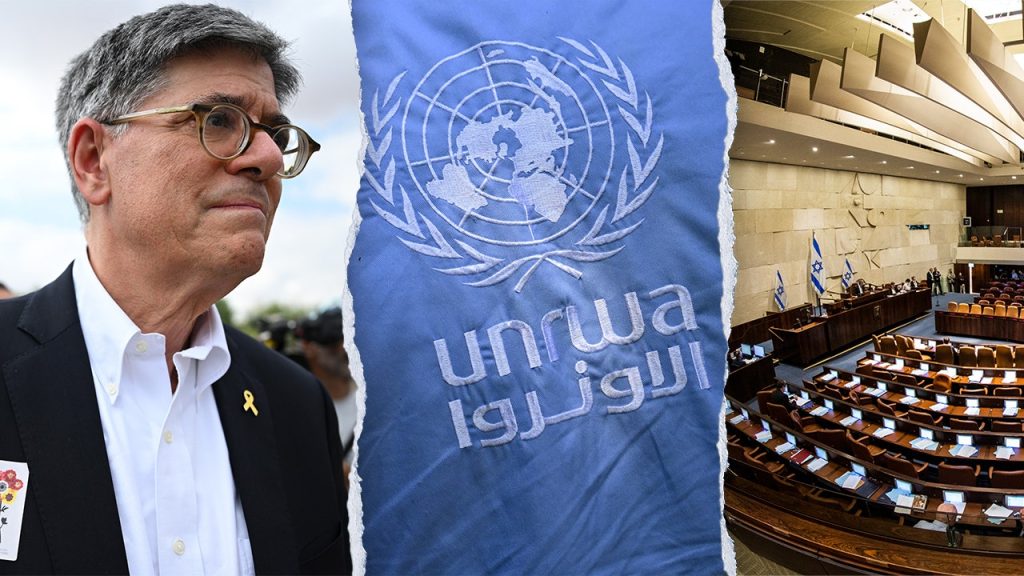The Israeli Knesset is preparing to debate legislation aimed at severing ties with the United Nations Relief and Works Agency for Palestine Refugees in the Near East (UNRWA), amid mounting pressure from the U.S. government to halt the proposed laws. Israeli Prime Minister Benjamin Netanyahu and opposition leaders have received requests from U.S. Ambassador to Israel Jacob Lew to prevent the legislation from moving forward. The current legislation seeks to end all relations between UNRWA and Israel, citing the agency as a terrorist organization with ties to Hamas and perpetuating the conflict in the region.
The Biden administration recently sent a letter to Israeli leaders warning of dire consequences if the legislation against UNRWA is passed, including potential disruptions in humanitarian aid and U.S. weapons supply to Israel. U.S. Secretary of State Antony Blinken and Secretary of Defense Lloyd Austin stressed the importance of maintaining services provided by UNRWA in Gaza, the West Bank, Lebanon, and Jordan while expressing concerns about the agency’s involvement in terrorist activities. However, U.S. officials also support the need for reforms within UNRWA to address these concerns.
Despite the pressure from the U.S., Israeli politicians such as Yulia Malinovsky and Avigdor Lieberman remain committed to advancing the legislation to sever ties with UNRWA. They argue that UNRWA employees have been involved in terrorist activities, including the October 7 Massacre, and that the agency’s existence perpetuates the conflict in the region. Opposition leader Yair Lapid also supports the closure of UNRWA, emphasizing the agency’s role in violent incidents and its connections to terrorist groups.
The Israeli Security Agency, Shin Bet, has stated that UNRWA poses a threat to Israel’s national security, leading to further calls for the legislation to be passed. Jonathan Conricus, a former IDF officer, supports dismantling UNRWA entirely from Gaza and other areas of operation to improve the situation in the Middle East. The parents of Yonatan Samerano, a victim of a violent incident involving UNRWA employees, have appealed to the Israeli government to pass the law, highlighting the personal impact of the agency’s activities.
Despite bipartisan support for the legislation to end ties with UNRWA, some members of the Israeli government have expressed hesitance, labeling the proposed laws as extreme and suggesting they be delayed until after the upcoming U.S. elections. However, proponents of the bill argue that severing ties with UNRWA is crucial for Israel’s security and stability in the region. The debate surrounding the legislation reflects ongoing tensions between Israel, the U.S., and international organizations over the role of UNRWA in the Israeli-Palestinian conflict.
As the Israeli Knesset prepares to discuss and potentially vote on the legislation, the outcome of the debate will have significant implications for the future of UNRWA’s operations in Israel and the broader region. The pressure from the U.S. government to reconsider the proposed laws highlights the complex geopolitical dynamics at play and the differing perspectives on the role of UNRWA in addressing the humanitarian needs of Palestinian refugees. Ultimately, the decision on whether to sever ties with UNRWA will have lasting consequences for the security, stability, and peace efforts in the Middle East.


